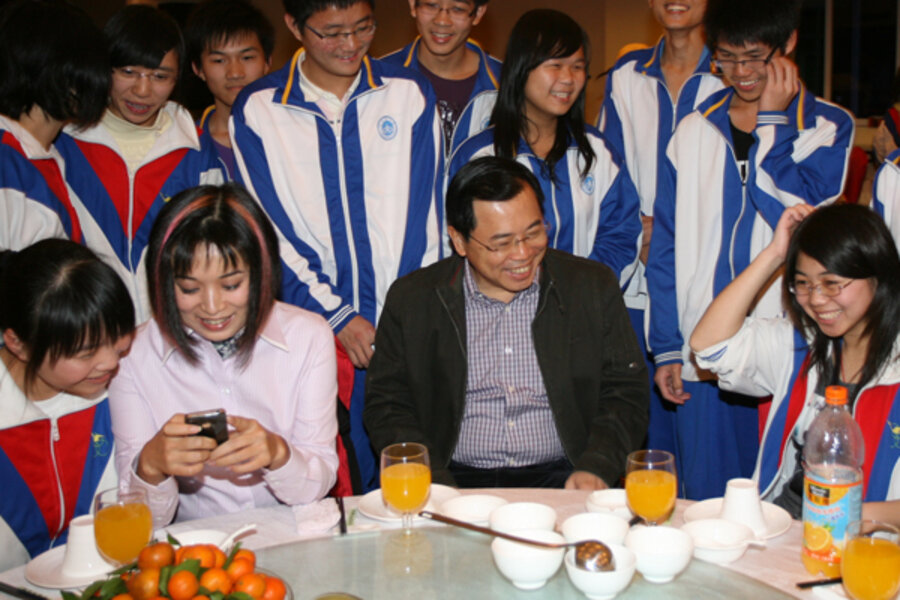Wei Xue, China
Wei Xue gets choked up when she talks about the students who attend the school she and her husband established in Huizhou, in southern China's Guangdong Province.
The former public relations executive says that the charity, Huameng, doesn't just give impoverished high school students a good education. "When they go to university, they write me these e-mails," says Ms. Wei. "They tell me, 'we've received your scholarship, which we will not forget for our whole life. But most importantly, we will transfer your love to others.' "
What's remarkable about Wei's thirst for charity is that her background could have been a breeding ground for bitterness. Her grandparents, wealthy factory owners, were killed during the Cultural Revolution. Wei was born in 1968, at the height of that tumultuous time, to a family with barely enough money to survive. When she went to school, her classmates told her she was from a "bad" family.
"But even though I was born in a hard environment, my mother kept telling me to be strong and that I must have love for people," says Wei, whose family distributed food weekly to the needy before they lost their wealth.
Besides the example set at home, Wei felt that the charitable instinct in China had been suppressed in recent years by a growing fascination with wealth. After spending eight years studying at universities in Japan and the United States, she says she faced major culture shock when she returned to China.
"I wasn't used to the way they communicated, the way they did business," she says. "People thought money was too important."
She became determined to change that. For the past five years, Wei and her husband, Li Dongsheng, head of TCL Corporation, one of China's biggest consumer electronics companies, have given 40 million yuan ($6.4 million) to support Huameng's programs. In addition to providing a high school education to 50 students each year, Huameng donates 5,000 yuan a year for 200 rural teachers in Guangdong. Many teachers in the countryside are poorly paid, so the money helps with basic living expenses and medical emergencies.
Wei also is the founder of a nongovernmental organization called the Asian Women's Development Forum. She sees it as a way for businesswomen to learn about research being done on how women can advance professionally and to support Asian women who struggle to feel comfortable in a pinstriped-suit environment. Over the years, the group has evolved to offer financial help for women and girls to get medical checkups and, in particular, surgery for heart disease.
In rural families, she says, "if a boy gets ill, the family will try its best to pay. But if a girl has a heart illness, they will just give up." The hard fact is that if a girl dies, the family – with China's one-child policy – would then have a second chance to give birth to a boy. The NGO pays for 60 heart surgeries a year.
The NGO also donated money last year to an orphanage in Tibet and to a school for the children of migrant workers in Beijing. (Chinese migrant workers, who are often working illegally outside their home province, cannot register their children for regular schools.)
The high school the organization supports in southern China, Hua Luogeng Secondary School, enrolls students from families who live below China's poverty line and are good students. Wei insists that the school admit 30 to 40 percent females, an unusually high percentage for Chinese high schools. Some of the students continue to receive financial aid from Huameng through the university level.
A few of those students have started their own charities while still in school. They tell her, "Auntie, we don't have money, but we have time" for volunteer work, thanks to her example.







